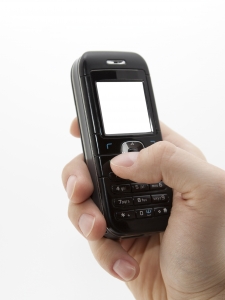Massachusetts and 41 other states have banned texting and driving, and our Boston car accident lawyers know that as many as 94 percent of respondents to a federal survey have said that they support laws prohibiting texting. Yet, even as police issue citations and drivers express concern that cell phone use is dangerous, motorists continue to use their cell phones in the car every day. 
The Boston Globe has recently taken a close look at why so many drivers continue to text even when they know it is risky. The answer that many experts have come up with: checking your phone is a powerful habit for many and checking the phone has become almost automatic.
SmartPhone Use may be a Hard Habit to Break
Habits are powerful shortcuts that allow for increased productivity, and the ability of the brain to form habits is a major strength for humans. Many of the things that you do each day you do by habit without having to think about them, such as brushing your teeth in the morning or locking the door when you leave for work. These habits form when you do something over and over, and using a SmartPhone definitely falls within this category.
Researchers who study the psychology behind habit formation conducted a study into how people use SmartPhones, providing 136 test subjects with phones that tracked their usage over six weeks. The test subjects took out and looked at their phones, at least briefly, as many as 60 times every single day. The subjects pulled up certain applications over-and-over under the same circumstances, like checking their email when they got bored or glancing at the news while waiting in line. This behavior became automatic or habitual and the users develop “triggers.”
Triggers are fundamental to habit formation and since people use SmartPhones to do so many different things, researchers believe that many different triggers develop that people associate with looking at their phones. A phone buzzing or ringing, for example, is a trigger that causes an automatic desire to answer the phone or read the message that was sent.
Motorists who have these triggers and who use their phone so often it has become an ingrained habit, will have a hard time stopping themselves from reacting to triggers even when they are driving. In fact, driving may actually make it more likely that motorists will respond to a trigger in an automatic habitual way by reaching for the phone.
Driving makes it harder to resist the temptation to respond to the phone because the driver’s prefrontal cortex is engaged in the task of driving. The prefrontal cortex is the part of the brain that controls inhibition, and since the brain is focused on driving, you’re brain is too busy to tell you not to pick up the ringing phone or look at the beeping text message.
One suggestion to reduce this temptation is to remove it by simply keeping the phone out of reach and turned off or on silent while driving. Other experts suggest fighting the bad habit of automatically picking up the phone with good habits of stowing the phone away where you won’t use it as you drive. Whatever option you choose, it is important to ensure that you don’t let your smartphone habit endanger you or others on the road.
If you or someone you love has been injured in a car accident in the Boston area, contact Jeffrey S. Glassman for a free and confidential appointment to discuss your rights. Call (617) 777-7777.
More Blog Entries:
School Back in Session, Accident Risks on the Rise, Boston Car Accident Lawyer Blog, September 7, 2013
 Boston Personal Injury Attorney Blog
Boston Personal Injury Attorney Blog

